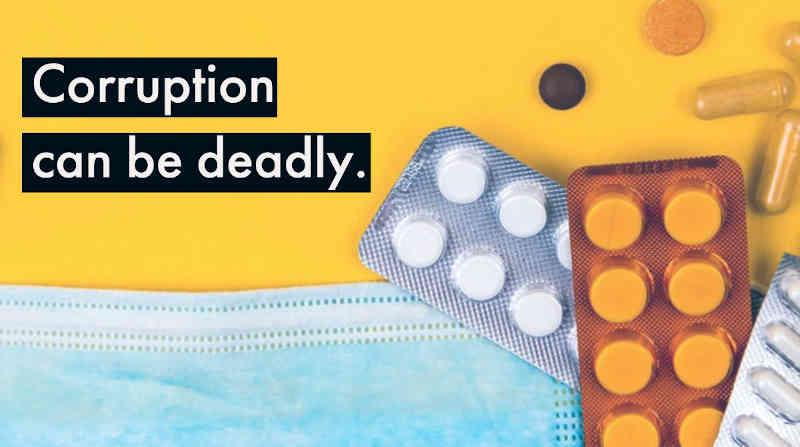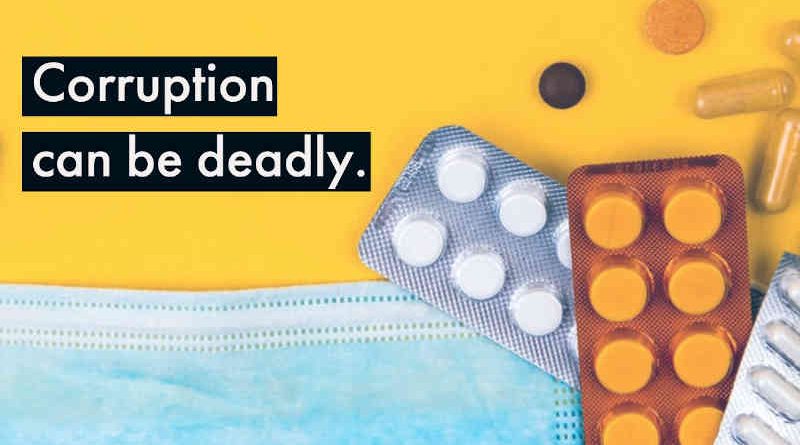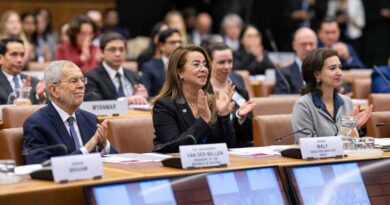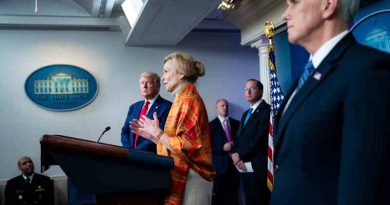Covid-19 Exposes Judicial Corruption and Human Rights Abuses: UN Experts

Individuals and communities harmed by corporate bribery and human rights abuses often have no recourse and judicial corruption can be a major barrier.
UN experts have warned of the devastating human cost of corruption, including human rights abuses if governments fail to guard against fraud and bribery in health-care supply chains as they secure essential medicines and personal-protective equipment (PPE) in the fight against Covid-19.
If medicines are diverted because a bribe is paid, innocent people deprived of treatment could die, they said in one of the key messages from the UN Working Group on Business and Human Rights report presented to the Human Rights Council.
The Working Group urges States to act rigorously and in a more integrated way to ensure that companies are preventing corruption in business activities and ensuring respect for human rights, as called for in the UN Guiding Principles on Business and Human Rights.
The experts said that some rare positive examples had emerged during the pandemic. Some States have denied financial assistance to companies located in offshore tax havens, or required companies receiving support to act in line with the Guiding Principles.
Others have required rescue funds be used for worker salaries and not for share buybacks. However, many more States need to take such measures and go further to make aid conditional on business respecting human rights.
“Masks are disposable, workers are not,” said Anita Ramasastry, the Chair of the Working Group. “They risk their lives going to work in grocery stores, factories, on farms and in hospitals and nursing homes. States should only support those companies who actively ensure their safety and well-being.”
If medicines are diverted because a bribe is paid, innocent people deprived of treatment could die – @WGBizHRs warns of the devastating human cost of corruption if governments fail to guard against fraud & bribery in the fight against #COVID19 👉 https://t.co/sujjAJtpu8#HRC44 pic.twitter.com/apZGQKcd3m
— UN Special Procedures (@UN_SPExperts) July 9, 2020
The report urged States to implement stronger legal and policy measures. “Reforming beneficial ownership laws so that victims of business-related human rights abuses, tax authorities and law enforcement, have information about the ultimate owner of a shell company, strengthens transparency, safeguards against corruption and helps protect human rights,” the experts said.
“Targeted sanctions, asset freezes, and visa denials can be used against individuals who perpetrate human rights abuses and/or engage in corrupt acts. Public procurement laws must ensure that taxpayer funds are not given to companies that pay bribes and commit fraud, and that government contracts go to those that respect human rights.”
The Working Group emphasized the urgent need for remedy for victims. Individuals and communities harmed by corporate bribery and human rights abuses often have no recourse and judicial corruption can be a major barrier.
The experts called on businesses to ensure they devote additional attention to the Guiding Principles and to integrating respect for human rights into corporate decision-making, alongside anti-corruption compliance programs. To speed up this agenda, the Working Group encouraged the introduction of mandatory human rights due diligence legislation, as is being developed in various parts of Europe and in the EU itself.
The Working Group members are: Ms. Anita Ramasastry (Chairperson), Mr. Dante Pesce (Vice-Chairperson), Mr. Surya Deva, Ms. Elżbieta Karska, and Mr. Githu Muigai.





